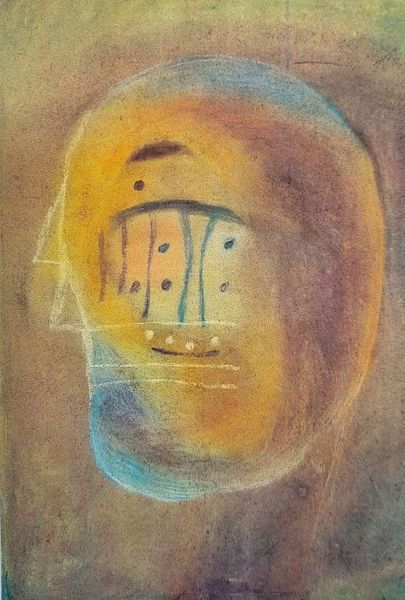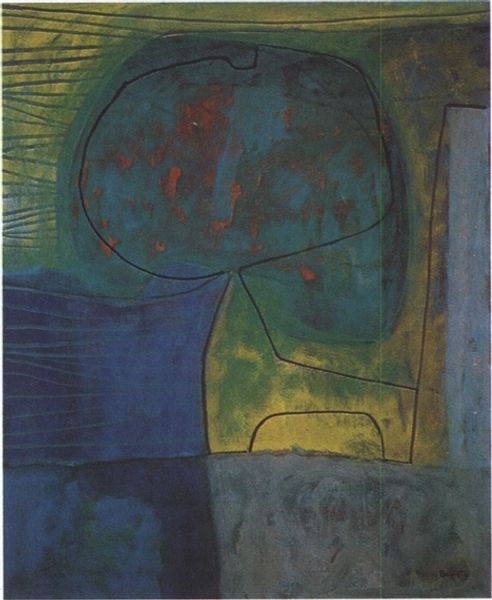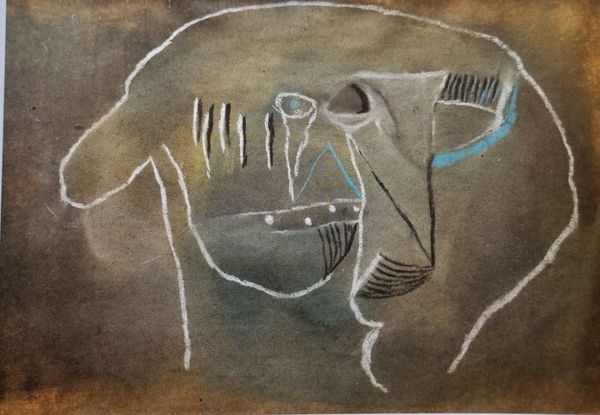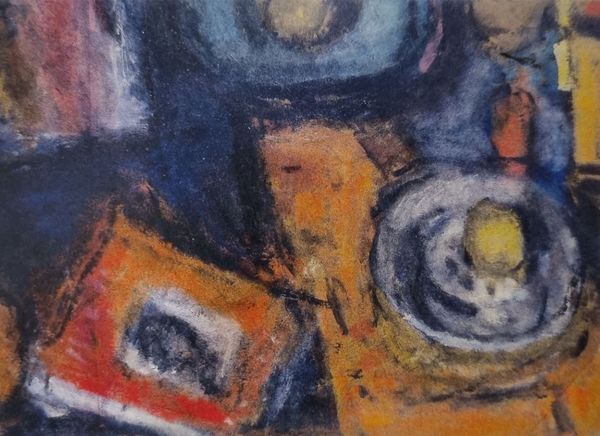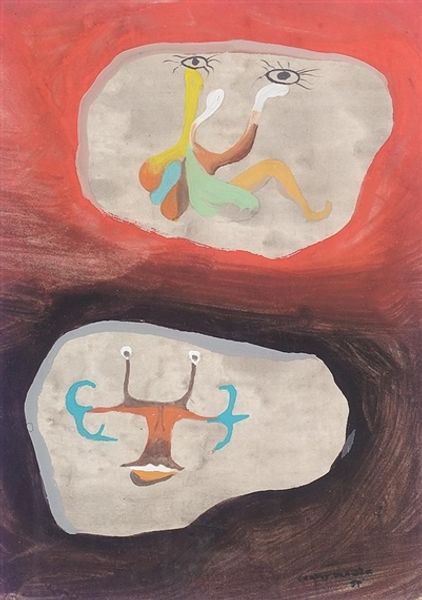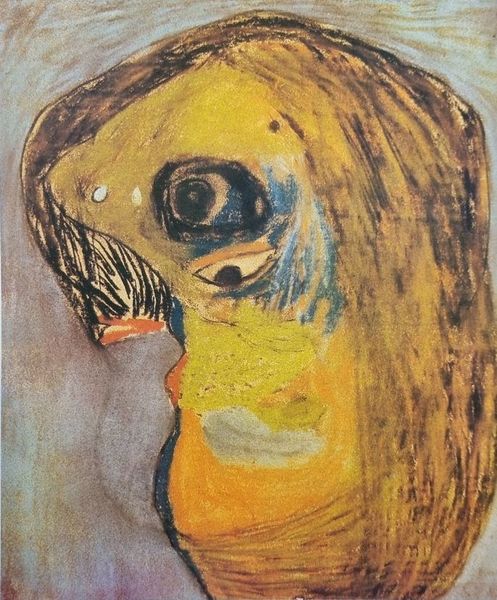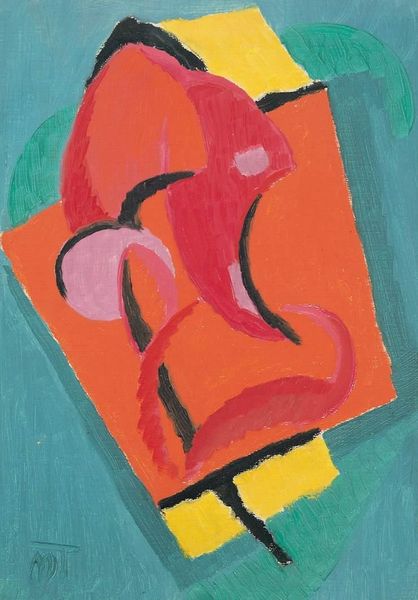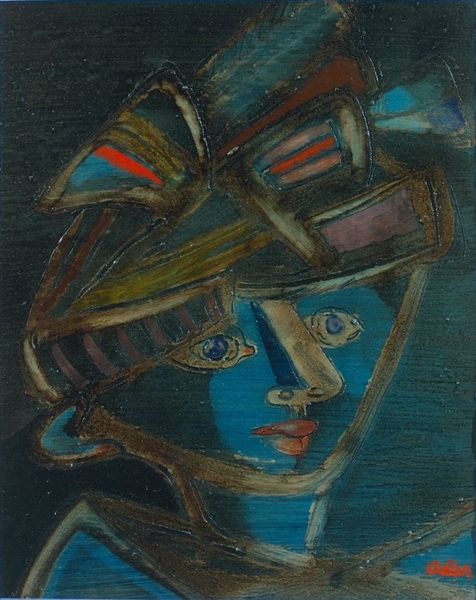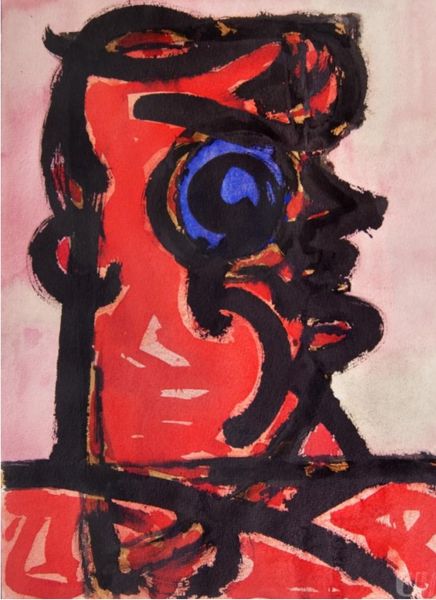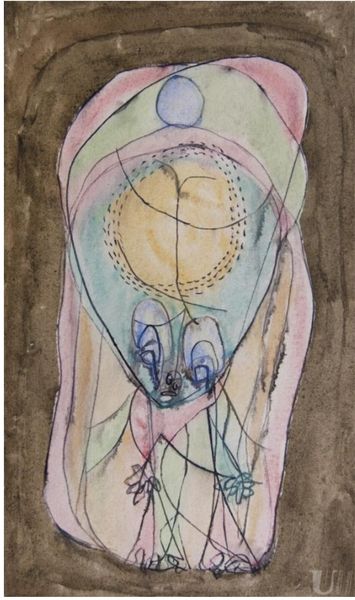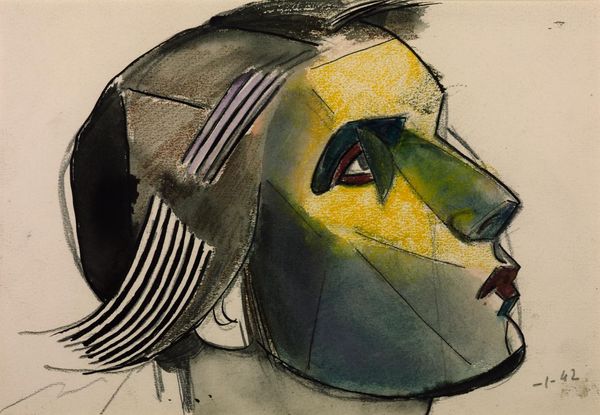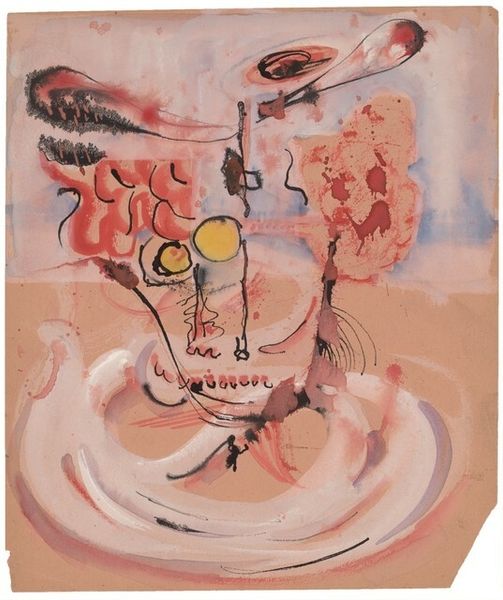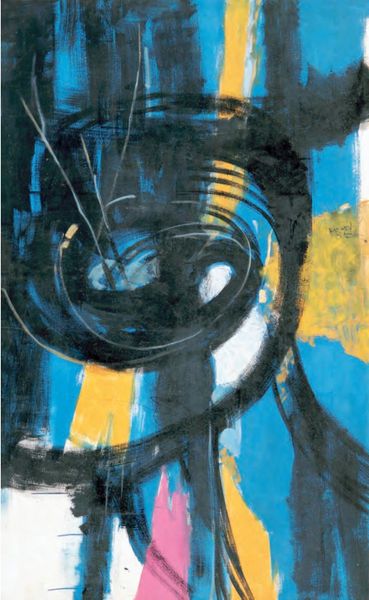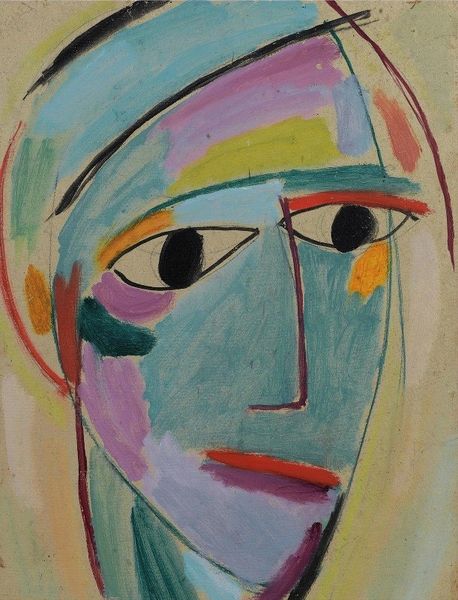
Copyright: Public domain
Vajda Lajos created this pastel on paper titled Rainbow Mask in 1936. The dream-like quality and the mask-like figure reflect the anxieties of interwar Europe. The mask motif appears throughout Vajda’s oeuvre, perhaps referencing the way social roles and expectations can conceal inner turmoil. Made in Hungary, this work reflects the rise of nationalist ideologies and the looming threat of World War II. Vajda, who was of Jewish heritage, would tragically die in a Nazi concentration camp a few years later. The “rainbow” in the title, however, offers a glimmer of hope amidst the darkness. Is the mask a form of resistance, a way to protect one’s inner self from the oppressive forces of the outside world? Art historians consult various sources to better understand artworks such as this one: artist's biographies, historical studies, and social theory, all of which can shed light on the complex relationship between art and society. The image becomes meaningful when we look at the context.
Comments
No comments
Be the first to comment and join the conversation on the ultimate creative platform.
